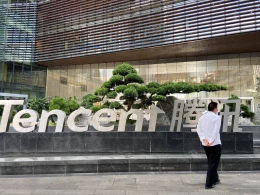As the world’s economic power continues to shift towards the East, Singapore and Hong Kong have emerged as two dominant players in Asia’s financial landscape. While both cities are renowned for their low-tax policies and business-friendly environments, they are now locked in a fierce battle to establish themselves as the go-to tax haven of Asia. In this blog post, we’ll take a closer look at why these two global hubs are vying for that title, what makes them unique, and what implications this rivalry might have on businesses seeking to set up shop in the region. So buckle up and get ready for an enlightening ride!
The Corporate Tax Rate in Hong Kong vs Singapore
The corporate tax rate in Hong Kong is 16.5%, while the corporate tax rate in Singapore is a flat 17%. So, which jurisdiction is more attractive for businesses?
To answer this question, we need to look at other factors besides the corporate tax rate. For instance, what are the compliance requirements in each jurisdiction? How easy is it to set up a business in each jurisdiction? And what kind of business activities are taxed in each jurisdiction?
When we compare all of these factors, it’s clear that Singapore is the more attractive destination for businesses. The compliance requirements are lower in Singapore, it’s easier to set up a business there, and a wider range of business activities are taxed. As a result, businesses looking to minimize their tax burden will choose Singapore over Hong Kong.
The Personal Income Tax Rate in Hong Kong vs Singapore
The top marginal personal income tax rate in Hong Kong is 17%, while in Singapore it is 20%. For lower incomes, the tax rates are 0% in Hong Kong and 2% in Singapore. The corporate income tax rate in Hong Kong is 16.5%, while in Singapore it is 17%.
When comparing the two jurisdictions, it is clear that Hong Kong has a more favourable personal income tax regime. However, when considering the overall taxation of an individual, it is important to take into account all taxes that they may be liable for. In addition to personal income tax, both individuals and businesses are subject to property taxes, stamp duties and other taxes.
When looking at the overall taxation burden, Hong Kong comes out ahead as the more attractive jurisdiction for both individuals and businesses. This is one of the main reasons why Hong Kong has been able to attract more foreign investment than Singapore.
The Property Tax Rate in Hong Kong vs Singapore
The amount of money that Hong Kong and Singapore residents have to pay in property taxes depends on the government’s assessment of the value of their homes, which is conducted every three years. In both cities, the tax rate is progressive, meaning that those with more expensive properties pay a higher percentage of their home’s value in taxes than those with cheaper properties.
In Hong Kong, the tax rate for properties valued at HK$2 million or less is 15%, while the tax rate for properties valued at HK$2 million or more is 30%. This means that someone with a HK$2 million property would pay HK$300,000 in property taxes every three years, while someone with a HK$20 million property would pay HK$6 million in property taxes over the same period.
In Singapore, the tax rates are lower than in Hong Kong, but there is still a significant difference between the amount of taxes paid by those with expensive and those with less expensive properties. For properties valued at S$1 million or less, the tax rate is 0%, while the tax rate for properties valued at S$1 million or more is 10%. This means that someone with a S$1 million property would pay no property taxes every three years, while someone with a S$10 million property would pay S$1 million in property taxes over the same period.
Overall, it appears that Singapore has lower property tax rates than Hong Kong. However, it should be noted that these rates
Which Country is More Attractive to High Net Worth Individuals?
While both Singapore and Hong Kong have a lot to offer high net worth individuals, there are some key differences that make one more attractive than the other. Here are a few reasons why Singapore is more attractive to HNWIs:
– Lower taxes: Singapore has a lower overall tax burden than Hong Kong, which makes it more attractive for HNWIs who are looking to minimize their tax liability.
– Greater financial privacy: Singapore offers greater financial privacy than Hong Kong, which is important for HNWIs who want to keep their finances private.
– Better infrastructure: Singapore’s infrastructure is generally better than Hong Kong’s, which makes it more convenient for HNWIs who want to live and work in the city.
– More stable political environment: Singapore’s political environment is generally more stable than Hong Kong’s, which can be important for HNWIs who want to avoid instability.
Why are Singapore and Hong Kong Battling to be the Go-To Tax Haven of Asia?
The fight for the title of Asia’s go-to tax haven is heating up between Singapore and Hong Kong.
Both jurisdictions offer low taxes, a simple tax regime, and a favourable business environment.
However, Singapore has been gaining ground on Hong Kong in recent years, thanks to its more favourable personal tax regime and its commitment to attracting foreign investment.
As a result, more and more businesses are choosing to set up shop in Singapore, which is quickly becoming the new hot spot for Asian businesses.
Conclusion
Singapore and Hong Kong are both vying to become the go-to tax haven of Asia. While Singapore is renowned for its low taxation levels, financial incentives and a well-developed infrastructure, Hong Kong has an attractive territorial basis of taxation, flexible regulatory environment and efficient judicial system. Ultimately, the decision between the two cities largely comes down to personal preference – depending on what attributes you deem most important in terms of tax efficiency. With that being said, it’s clear that both countries have their own advantages when it comes to offering businesses a unique platform from which they can expand into new markets across Asia.












